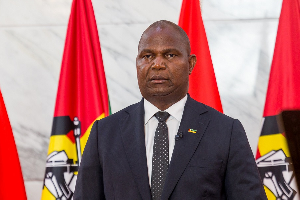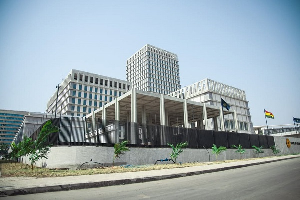The Institute of Democratic Governance (IDEG) has noted that women are not being fairly represented in political and public decision making in Ghana.
A statement signed by Mr. Kwesi Jonah, Senior Research Fellow, and Head of Advocacy and Institutional Relations, IDEG said even though Ghana has had a woman as Former Speaker of Parliament, two former women Chief Justices, two women Electoral Commission Chairpersons and for the first time, the selection of a female running mate for the December 2020 general elections by one of the two major political parties (the National Democratic Congress), participation in governance, political and public decision making is one of the main areas of inequality against women.
“Much still needs to be done to achieve gender parity in representation as the country is still lagging behind on addressing inclusive and representational issues with respect to the active participation of women in politics.
“Currently in the eighth Parliament, out of the 275-member Parliament, only 40 representing 14% are women. Although this indicates a marginal improvement from 13% in the seventh parliament and 10.7% in the sixth parliament, it is significantly below the global benchmark of 30% representation in National Assemblies or Parliaments,” it said.
Also, the proportion of women appointed as ministers and District Chief Executives (DCEs) has consistently been less than 20% since independence. Specifically, the percentage of women holding positions within the District Assemblies has remained below 10% nationwide. There is evidence to suggest that marginalization and exclusion of women in political representation has negative impact on governance and institutions. Also, greater women representation enhances the quality of institutions by reducing corruption rent-extraction by those in authority. Further, the presence of women in parliament and decision-making processes helps to improve the quality of debate and policy making.
Against this background, the Institute for Democratic Governance (IDEG) and the European Union (EU) Delegation in Ghana will hold a Webinar on the theme “Strengthening Women’s Inclusion in Governance and the Urgency of the Affirmative Action Bill: Progress, Challenges and Way Forward” on Friday 21st May 2021.
The Webinar will focus on the Ghanaian experience of women representation with lessons from Rwandan and Spanish experiences. The Seminar will draw on participation from key stakeholders and institutions such as the Coalition for Affirmative Action, the Ministry for Gender, Women and Social Protection; Parliament; political parties; media.
Women’s Organizations including Women in Law and Development in Ghana; Women’s Manifesto Coalition; Universities; and International Development Agencies. Participants will also include policymakers, gender advocates, queen mothers, women leaders, journalists and media professionals who specialize in women and gender issues, among other key actors.
Politics of Thursday, 20 May 2021
Source: 3news.com













